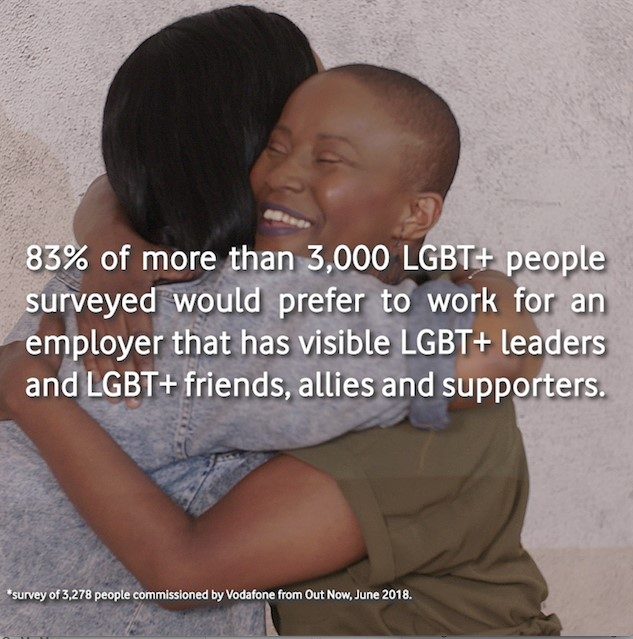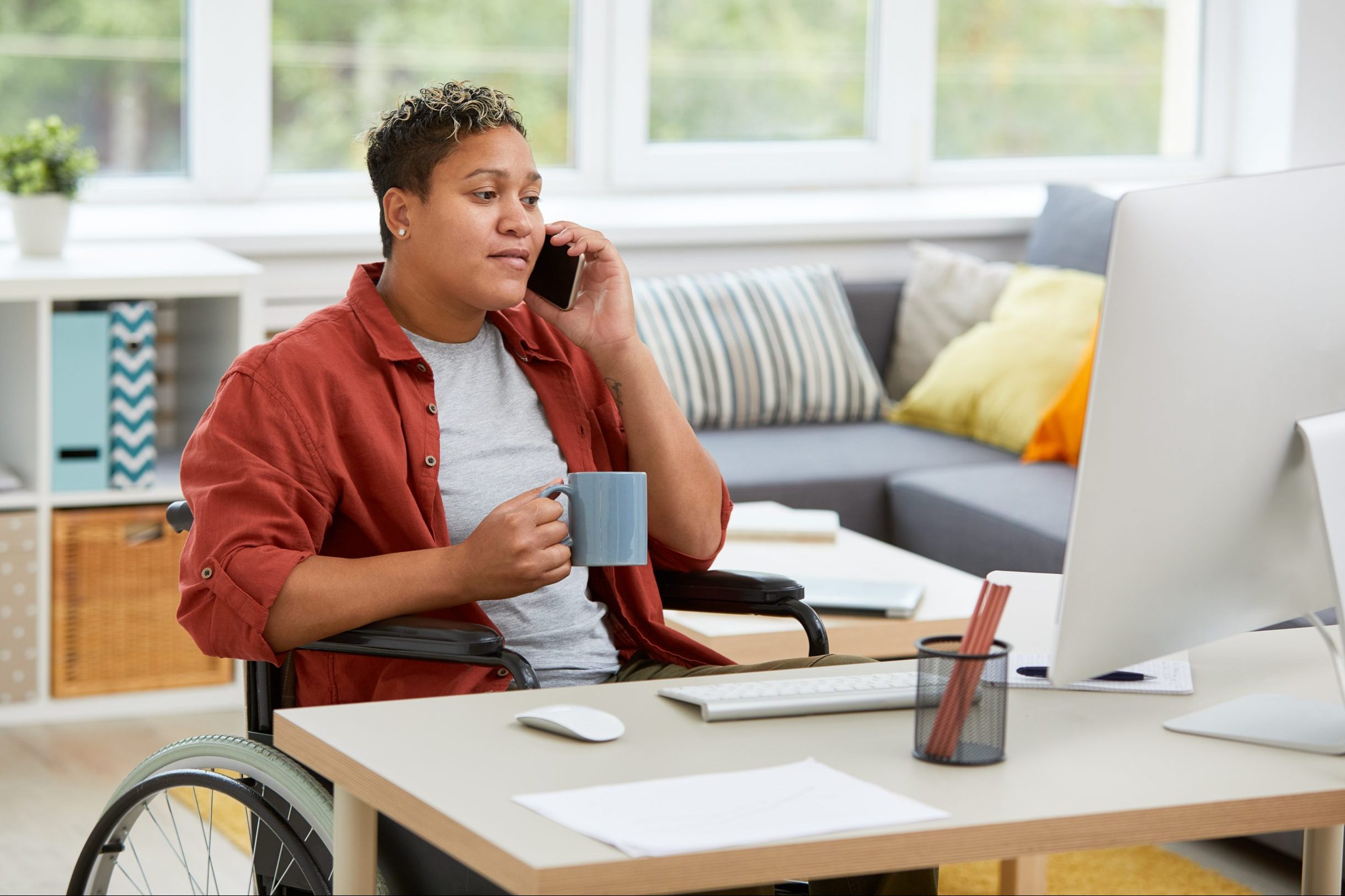
Vodafone has launched a multi-country programme to help attract and retain LGBT+ talent with specific support for young LGBT+ people starting their first job.
Vodafone launches multi-country programme to help attract and support LGBT+ talent
More than half (58%) of young LGBT+ people are not open about their sexual orientation or gender identity at work because they worry they will face discrimination from managers and colleagues, with 1 in 3 (31%) LGBT+ people admitting they went ‘back into the closet’ when they started their first job. This figure rises to 41% among 18-25 year olds.
New international research – commissioned by Vodafone from research firm Out Now – surveyed more than 3,000[1] LGBT+ young people across 15 countries and multiple industries, and found that the reasons young LGBT+ people feel unable to be out or open at work include: worrying that colleagues will react negatively (60%); fearing their career prospects will be worse (42%); and feeling they will be less likely to get promoted (33%). Many of those surveyed said that not being open about their LGBT+ status had negative repercussions, with nearly one third (28%) saying they had been less productive at work as a result.
The Vodafone/Out Now research also found that over half (51%) of those surveyed said that they were ‘not out at all’ to their direct manager in their first job, and 37% were not out at all to their colleagues. These figures fall to 13% and 8% respectively in their current jobs, highlighting the need for more support when young people first start work.
This extensive research, along with insights gathered from current LGBT+ employees at Vodafone, has informed a new multi-country programme at Vodafone ‘LGBT+ and Friends Connect’, which is aimed at hiring and supporting LGBT+ people in their first jobs and providing training for managers.
Other findings from the research included:
- 1 in 5 (21%) said that being out or open at work is the ‘hardest thing they’ve done’
- Three quarters (76%) of LGBT+ employees have hidden their sexual orientation or gender identity at work at least once.
- Only 29% of LGBT+ women aged 18-35 are out at work today compared with 44% of men, for fear of discrimination.
- 83% said that clear and visible signs from managers that they take LGBT+ inclusion seriously are important in helping them to feel comfortable to be out or open at work.
- 83% would prefer to work for an employer that has visible LGBT+ leaders, and LGBT+ friends, allies and supporters.

To help create a culture where employees can be open about their sexual orientation and gender identity, Vodafone is launching:
- LGBT+ inclusive messaging on Vodafone job adverts and career channels
- A global ’buddying’ programme for LGBT+ graduates;
- A refreshed Code of Conduct which will support LGBT+ inclusivity;
- Graduate, induction and leadership training programmes to support, retain and help attract LGBT+ employees;
- Toolkit for managers to create an LGBT+ inclusive workplace and
- An interactive learning programme for ally accreditation.
Vodafone Group Chief Executive Vittorio Colao said:
“I am saddened that so many young LGBT+ people feel they still have to hide their status in the workplace. We are committed to creating a culture at Vodafone that embraces everyone for who they are, inclusive of sexual orientation and gender identity.
“Training for employees at all levels and visible signs of support through programmes like ours can make a real difference, and help to attract and retain a talented, diverse and productive workforce. The programme offers specific support for people starting their first job, which our research shows can be a particularly challenging experience for young LGBT+ people. We are also encouraging all employees to educate themselves and support LGBT+ colleagues to help create a truly inclusive workplace.”
Vodafone has a zero tolerance stance on homophobic, biphobic and transphobic discrimination, and works closely with leading diversity and inclusion NGOs on the development of materials and programmes for each of its local and international initiatives.
Full set of survey results available to download here.
Video and infographics available to download here.
-ends-
[1] Out Now research conducted among 3,200 18-35 year olds in Australia, Czech Republic, Germany, Greece, Hungary, Ireland, Italy, Netherlands, New Zealand, Portugal, Romania, South Africa, Spain, Turkey, UK.





